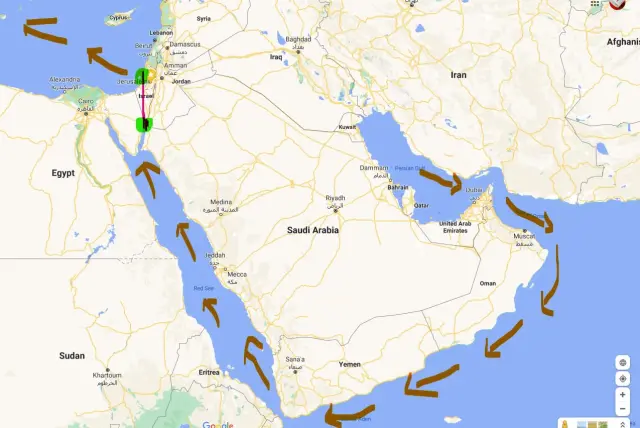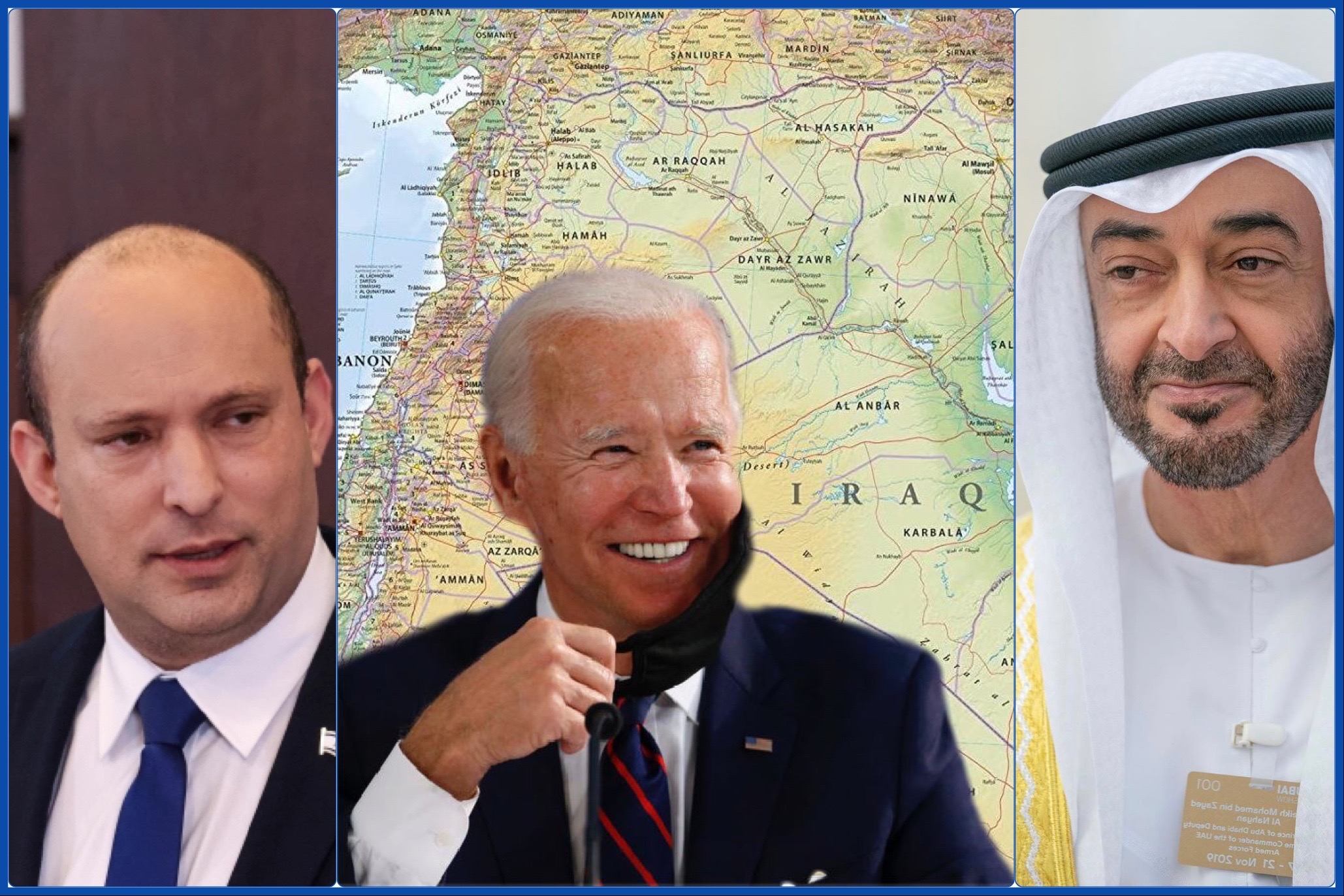It is very clear that the Biden administration took a very radical turn on its Middle Eastern affairs. Indeed, business is dealt in a very different fashion. The huge gestures and bombastic claims with little to show for on the ground gave way to meticulous work on gradual rearrangement. The aim changed little, as Washington is slowly turning the center of its attention away from the Middle East to focus on more pressing matters, like China, Russia, and its relations with the European partners.
While Trump aimed to support all possible desires to its top Middle Eastern ally, Netanyahu, and have dominance over the region, the Biden leadership plays on a more colorful strategy of interdependencies and a less visible control behind the curtains.
This change is full of major steps well discussed in the media. The way Iran and the nuclear deal with it is handled was the first, most obvious deviation from the previous path. The way former prime allies, like Israel, Saudi Arabia or the Emirates are handled also come within this framework, thought this has much to do with the personal relations between Trump himself and the leaders for these countries under Trump. And recently came the most bombastic of all, the – seemingly – sudden full withdrawal of the American forces from Afghanistan. This is the practical admission of a military failure in this long lasting project, since it clearly seals the fate of the current Afghan government, just like it happened with the Soviets upon their withdrawal.
Yet, much more hidden from the headlines there was another, subtle decision which practically closed of the most celebrated chapter of the Trump era’s Middle East policy, the normalization process under the Abraham Accords logo. More than two weeks ago Washington practically closed the fund which was supposed to give a financial incentive to keep the normalization process rolling. Though in theory the general polical agenda of the Abraham Accords is still a priority, this move obviously closed this chapter.
But why is that so significant? Has it really sealed the fate of the normalization process? Can we soon witness a rollback effect scraping all the achievements of Trump? Has the normalization failed after all, as if nothing has happened?
The end of the Abraham Fund
With much less fanfare than the original deal and the setup of the Abraham Fund, it was discreetly announced on 7 July that the Biden administration “froze” the Abraham Fund. Though there is still a level of sugarcoating to the decision claiming that the project is not off the table and the Abraham Accords is still a priority for Washington hoping that other Middle Eastern states will join, there is in fact little doubt what really happened. The $3 billion allocated from the American budget for the fund is reallocated to combat the economic effects of Covid-19, and to revitalize the American economy. Practically meaning that all support is withdrawn and the Fund only stays alive on paper. The term “indefinitely frozen” is widely circulate about the project, diplomatically meaning closed for ever. But what was this Abraham Fund?
When the official “peace deal” was signed almost a year ago, on 15 September 2020 between the UAE, Bahrain, Israel and the United States dubbed Abraham Accords it was the icebreaking moment for Trump in his Middle East policy. It had a long road starting with the infamous “Deal of the Century” in the Bahrain Summit. This first step still focused on the Palestinian matter, thought was paving the way for and Israeli-Emirati alliance and took more than a year to fully materialize. And it did which such a success that eventually Sudan and Morocco also joined the process, while other states like Saudi Arabia, Qatar and Oman were rumored to follow the example soon. Thought they never did and now this possibly seems farther every day, it was a game changing moment and clearly broke a mental barrier in the Arab world.
Right at that time the Trump administration clearly understood that this project to stay viable and even to bring in new members it needs strong financial incentives, which will persuade regional governments that it is within their best interest to join the “club”. And also it was to move for the American business interests, which can take part in the lucrative business built upon the agreement. Therefore a $3 billion fund was set up, named Abraham Fund, to finance mutual investments between the member states. And there were a lot of opportunities, mostly on the fields of military hardware and the energy sector. This was to be the monetary engine running the agreement and paving the way for other partners’ join via huge giga projects.
The fund was set up promptly in October 2020 and Rabbi Aryeh Lightstone was appointed to lead it. A vast range of projects were put forward with huge American firms convinced to bankroll the project with the fund behind them. So things seemed promising. However, in January 2021, shortly after Biden took office Lightstone resigned and was never replaced. Which was a bad sign already that things don’t go so smooth. Therefore in March 2021 a new substitute, a $10 billion Emirati-Israeli fund was announced, which was supposed to be launched on Netanyahu’s visit to Abū Zabī. But that visit never came – for already growing tension between the new allies – and recently Netanyahu lost his position. The subsequent negotiations between the UAE and the new Israeli government came to a halt, so practically this substitute did not fulfill its role either.
This Emirati-Israeli fund was already a major deviation from the original American controlled multilateral bankrolling system. It rather focused on the bilateral projects, many of them being vital interests for the Emirates. Yet this deviation showed that the Abraham Accords will not attracts new members in the near future. Nonetheless, it could still stabilize the already secured achievements. And there were huge matter at hand, as we shall soon see.
As we can see the Biden administration was never keen on continuing the normalization processes despite the statements contrary and slowly undermined the framework. Freezing the Abraham Fund, which for six months has no director anyways, was just the last step. But with this the Abraham Accords in its original form is done for. It will either reform in a local, bilateral level, or will end up as the Israeli-Mauritanian peace deal in the ‘90-s, to which no one really remembers anymore.
The size of the matter
One could argue that the death of its financial basis does not necessarily means the failure of the whole Abraham Accords project. It could in theory continue on political, cultural and strategic levels. However, we should not loose sight on the fact that this was from the very beginning a business deal. The very nature of Trump is the best indication that this was never a idealistic moral program. None of the signatory states had any other motives in the deal than business, apart from Morocco, which also intended to win American favor for its struggle for Western Sahara. Which is large was successful. Sudan was the best example, which never wanted to join the deal and was only persuaded by blatant American pressure. So in essence that is a business endeavor before anything else. Thus losing its finance basis casts a very grim prospect.
With its $3 billion size the Abraham Fund does not seem to be particularly huge, especially considering that it was not only about the Emirati-Israeli ties, or the Israeli deal with the signatory states, but was also to attract other participants. However, there were massive deals in this framework, which did not necessarily need money directly – that is available locally – but the legal framework with some “neutral” American oversight guaranteeing smooth operation.
The biggest of these projects was on such a volume that explains why it was revitalized even after the initial glitch of the Abraham Funds. At it is still not off the table. That is the infamous Europe Asia Pipeline Company pipeline crossing Israel from the Red Sea to the ports of Haifa and Ashdod, where the oil products from the Gulf would be transported to Europe. This would be a major energy supply route from the Gulf to Europe securing economic sustainability for decades with its huge revenues. The EU already finances a pipeline reaching to Cyprus, meaning very close to Israel.

The two end-ports of this project on the Mediterranean would the refineries in Ashdod and Haifa, thought these need major reconstructions and upgrades. This is not even a totally new projects, as practically the same thing was on the way by Iranian funds in the ‘60s and the ‘70, only to be cut short by the Iranian revolution.

From here we can understand a number of other regional developments in the last few years. That is why incorporating Saudi Arabia into the deal was a vital interest for the Emirates, as it would guarantee safe transport, and that is why Ibn Salmān’s Nayūm dream city project is constructed in this vital juncture. That is why Yemen, especially its southern tip is a key part of the project. Because securing it, even pouring Yemeni oil in it solidifies the project, while letting Yemen to shift into the Iranian orbit of interest is a major hazard for the project.
It is not a coincidence at all that in late October 2020, meaning only weeks after the Abraham Fund was launched, an Israeli and an Emirati company entered a tender to upgrade the port of Haifa in a joint proposal. It was to be won by one of the biggest Emirati business groups, but the project was halted and is still under debate. That is why shortly after Biden’s victory the Emirates launched a new even bigger fund. Exactly to finance such major projects and that is what Netanyahu meant, when he said the UAE will invest $10 billion in Israel.
Since there are new business interest in favor at Tel Aviv the project is under re-evaluation, but is surely not off the table. But the Emirate have much to think about how to proceed, as Washington clearly does not favor the project. And naturally there are other interests, like Turkey and Russia, which also have motive not to allow this project to succeed.
Why did Biden change?
In theory and also in the long run, but this giga project – especially with open or covert Saudi membership – could secure fast and reliable alternative energy source to Europe liberating it from the Russia dependency. On its own this could sound beneficial to the U.S. as well.
However, things have changed in the last decade or so in the oil market and the USA has become an energy provider itself, trying to find European market for its still not cheap liquified gas and oil. It is not a particularly big American interest to see this Israeli-Emirate initiative blossom, at least not without American involvement.
There are, however, strategic considerations as well. The Abraham Accords foreshadowed a near future, when Israel would be to sustain itself alone in the region and conduct massive financial deals even without American patronage. This is in fact what Trump wanted.
In his theory providing all for Israel and securing its supremacy in the region would enable the U.S. to free much of its forces in the region. Could still tap into the lucrative Gulf money sources, but most of the assets could be relocated into other areas.
Under Biden this paradigm turned the other way around, as it is not viewed particularly desirable to see Israel acting completely alone, without the need of the American support. It is true that Washington is still the most fundamental ally of Israel and would not allow anything that would jeopardize its interests. But at the same time for a number of major and smaller projects the U.S. needs Israel. There is a well established interdependency. In many ways the same is true to the Gulf states. Their complete reliance on the American support and patronage is a vital interest for the U.S. not only as an energy source for it, but as a vital asset not to be allowed to be taken over by other global players.
There is a change in the whole global strategy, in which the Middle East is a very important piece. Biden’s bid to see a different Israeli government, and a new, or a much humbled Saudi leadership all fit into this pattern. And all other considerations from Iran to Syria, from Afghanistan to Turkey are arranged to service this new paradigm.
Was it all for nothing?
With the Abraham Fund closed down the whole Abraham Accords project came to a halt. There will be no new joining members soon. Washington now motivates the regional players to the opposite, and even politically it is not favorable for Biden to promote a project started by Trump. That much is obvious.
Now, with the Israeli-Emirati relations on shaky grounds and growing tension between Saudi Arabia and the UAE it is doubtful how much the forming Saudi-Emirati-Israeli block could operate. The Israeli pipeline with, or without Emirati involvement might materialize eventually, but that is now far from the original all-transforming idea they envisioned in Washington in September 2020.
So all the Arab states fearing the growing Israeli influence in the region, which vowed for the failure of the normalization process might feel themselves reassured. The project in large has indeed failed. So, was it all for nothing?
Though in economic terms – which is the most important – the Abraham Accords, the Deal of the Century and the normalization process is gone. Nonetheless, Tel Aviv managed to break formally untouchable barriers. Just like the Egyptian-Israeli agreement almost four decade ago. It is true that the Israeli-Egyptian ties never developed into the harmonious ties imaged in Camp David, the pact nonetheless consolidated Israeli ties in the region. A new chapter started, though for decades much stayed hidden from the public.
Now looking at the growing ties between Morocco and Israel, or that Tel Aviv managed to gain a stabile foothold in the Gulf and in Sudan the achievements are big. It will take time to capitalize on these gains. Especially with a new government in charge in Tel Aviv. But a major transformation has already begun.


